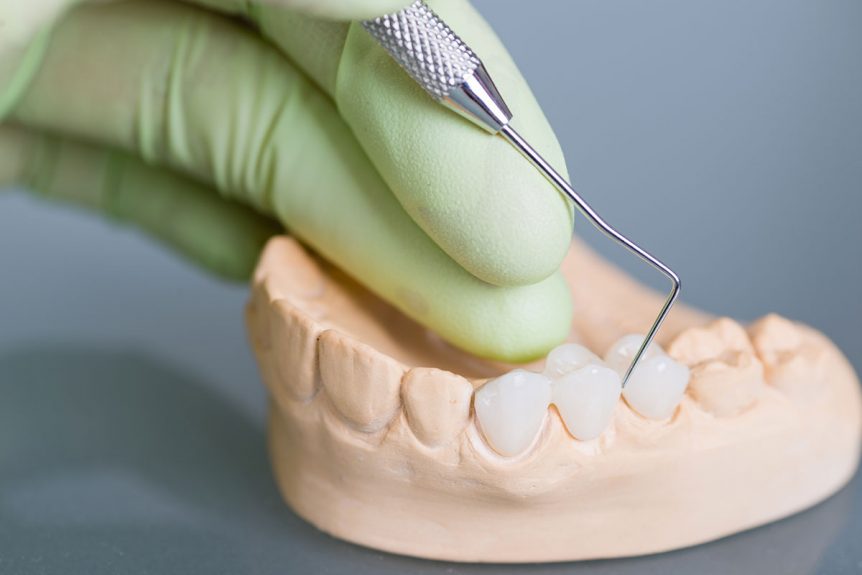If you have been told that you need to have some or all of your teeth removed, your first reaction might be shock or sadness. After all, you have lived with your teeth your entire life, and even if they are painful and broken, they are still a part of your body. Your reaction may first be to take some time to grieve prior to making any decisions. When you have come to terms with your new reality, you must prepare yourself to move forward and now, it will be absolutely critical that you make the correct choices that are best for you. How can one be assured of making the “best” choice?
Why Replace Teeth?
The reality is that sometimes teeth are simply too far gone to save. You might have experienced oral-facial trauma or simply suffer from severe tooth decay. Whatever the reason, replacing your failing teeth will eliminate pain, improve your overall health, stabilize and improve your ability to eat and speak, and even enhance your facial aesthetics. You may perceive it as a scary process, but the rewards will be well worth your efforts. As you ponder these daunting decisions, keep in mind in restorative dentistry, there is no “one-size-fits-all” solution to the problem of missing or failing teeth. When you are faced with making such a huge decision about your oral health, it only makes sense to visit a specialist with the most training, skill, and experience to help you work through these decisions that will assure you of the very best possible outcome.
Seeing an Oral & Maxillofacial Surgeon
If you are in need of any type of dental prosthesis, if you need to replace most or all of your teeth, the initial and most important issue for you to consider is an overall plan that is directed towards your very specific needs and desires. With that in mind, it makes the most sense to have a consultation and a complete oral and maxillofacial examination by a Board Certified oral and maxillofacial surgeon. In our office this consultation will include a complete clinical examination of your head, neck, face and oral cavity (the maxillofacial region). Next, in-office radiographic studies will be necessary. This study will consist of an oral surgery scout film commonly referred to as a panorex. Depending on the results of the clinical and radiographic studies further imaging studies (CBCT, cone beam computerized tomography) may be necessary to finalize a complete treatment plan to address your concerns. This comprehensive approach will allow us to completely assess the underlying support structure of your teeth, which teeth are stable, healthy, and able to help support a future dental prosthesis.
Treatment Planning
We will then coordinate and work closely with you and your restorative dentist to provide a treatment plan that specifically meets your needs, goals, desires, and budget. Depending on your needs and desires a partial denture, full dentures, or dental implants will be considered. We have the ability to carefully present and discuss your options and answer all of your questions. Sometimes there is a clinical need for one type of tooth replacement over another, but most often these decision are in your hands. With our in depth analysis we will be happy to provide advice and recommendations. Many times this comprehensive plan can be addressed in an expeditious manner or it can be scheduled and staged over a period of time, once again depending on your desires.
Surgery and Anesthesia
Board Certified Oral and Maxillofacial Surgeons have the training, ability and the proper equipment to surgically remove teeth in such a way as to leave the dental arches and alveolar bone in an ideal state for comfortable fitting of the appropriate dental prosthesis and the potential placement of osseointegrated implant fixtures. If the surgical procedures are involved or if we are looking to expedite treatment and combine surgical visits, general anesthesia may be the most appropriate option, especially if you suffer from dental anxiety. All of our surgical procedures can be performed under local anesthesia, with or without the addition of nitrous oxide, IV sedation or with full general anesthesia. Only oral and maxillofacial surgeons are fully licensed and accredited to provide this type of service in an outpatient dental office. We will discuss this with you in detail and help you make a determination on which type of anesthesia is most appropriate for you.
Ready to Get Started?
If you are honestly ready to get started, your first and most important decision should be to seek a comprehensive oral-facial evaluation by a Board Certified Oral & Maxillofacial Surgeon. Our surgeons are experienced, Board Certified, prepared and ready to provide this in depth personalized service. To schedule your first appointment we invite you to contact New Jersey Oral & Maxillofacial Surgery Associates, P.C. today. We have 3 full time, conveniently located offices servicing all of Bergen and Hudson counties, at Hackensack (201-342-7353), Ridgefield (201-941-9494), or North Bergen (201-867-0404) to insure your journey to better oral health.

